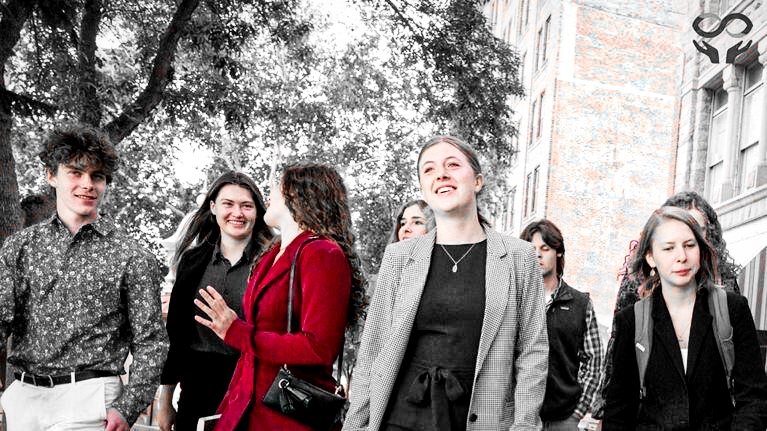2023 was by all accounts — except perhaps those of diehard climate deniers and the more two-faced participants at last month’s CoP28 climate conference — a hell of a year.
Not only did governments fail to reverse the tide of global warming, the rate of heating actually accelerated.
That’s why an obscure, little-reported court ruling in an obscure, out-of-the-way mountain state in the US last August — a month of record-breaking temperatures across the entire northern hemisphere — has the potential to create such a huge ripple effect in the campaign to stem and possibly reverse global heating caused by fossil fuels.
On Aug. 15, a state court in Montana ruled in favour of 16 young people who had sued their local government, arguing that policies that favour fossil fuels violate their constitutional rights to a clean and healthy environment.
In short, youth climate campaigners — inspired in part by Greta Thunberg — were able to prove, using the testimony of climate scientists and constitutional experts, that the climate crisis jeopardizes their generation’s future well-being as guaranteed under the United Nations Charter of Human Rights.
Montana district court judge Kathy Seeley made no bones in her 103-page written ruling.
“Plaintiffs have proven that as children and youth, they are disproportionately harmed by fossil fuel production and climate impacts,” she wrote.
True, the state of Montana is appealing the ruling — an upper court decision is pending — and no one is under any illusion that the Republican/Trumpist-dominated US Supreme Court will toss the ruling the first chance it gets, but a legal precedent has been set.
Recent court rulings across Latin America and South America have shown that court challenges by youth climate campaigners, once ridiculed as the namby-pamby imaginings of a pampered generation of idle kids who don’t have to work for a living yet, may carry more legal weight than many doubters first assumed.
The Montana court judgment has already marked an important turn in the road for climate campaigners who are using the legal system to address the climate crisis.
If nothing else, the ruling is the first trial win for the public interest lawyers who represent the climate advocacy group Our Children’s Trust.
Their voices are growing louder.
By the end of 2022, there were more than 2,100 climate-change-related court cases filed globally, more than double the total from 2017, according to a report from the United Nations Environment Programme. Court cases have been filed in Argentina, Australia, Canada, Colombia, Ecuador, France, and New Zealand, among other countries.
This past month, lawyers representing youth-driven campaigns across the continental United States filed suit against the US Environmental Protection Agency, accusing the agency of failing to meet its obligation to protect the environment for future generations.
The lawsuits are part of a larger movement to use the courts to hold polluters — and the governments that enable them — to account for reckless endangerment and depraved indifference in the name of profit-making.
The impact is global.
In September, a half dozen youthful climate campaigners in Portugal filed suit at the European Court of Human Rights, arguing that governments in Europe aren’t doing enough to protect younger generations from the effects of the climate crisis. That’s instructive because governments across Europe are already far more progressive in combating global heating than in the US and China, the world’s two largest emitters of carbon. We’re talking about Portugal, Sweden, Denmark, Spain, France and Germany, not Trumpist America. If continental Europe is shown to be neglecting its moral and fiduciary duty to future generations, what chance have America and Canada?
The kids are all right.
https://www.theguardian.com/us-news/2023/aug/14/montana-climate-trial-young-activists-judge-order
https://www.theguardian.com/us-news/2023/aug/20/what-happened-montana-climate-trial-decision


